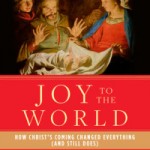Today (August 20) has been the feast day of St. Bernard of Clairvaux, a saint close to the heart of the pope emeritus, Benedict XVI. To know St. Bernard is to understand what passion flows from the heart of God for man.
In the Liturgy of the Hours today is this from the abbot of Clairvaux:
Love is sufficient of itself, it gives pleasure by itself and because of itself. It is its own merit, its own reward. Love looks for no cause outside itself, no effect beyond itself. Its profit lies in its practice. I love because I love, I love that I may love. Love is a great thing so long as it continually returns to its fountainhead, flows back to its source, always drawing from there the water which constantly replenishes it. Of all the movements, sensations and feelings of the soul, love is the only one in which the creature can respond to the Creator and make some sort of similar return however unequal though it be. For when God loves, all he desires is to be loved in return; the sole purpose of his love is to be loved, in the knowledge that those who love him are made happy by their love of him.
In an audience in 2009, Pope Benedict explained:
Jesus alone Bernard insists in the face of the complex dialectical reasoning of his time Jesus alone is “honey in the mouth, song to the ear, jubilation in the heart (mel in ore, in aure melos, in corde iubilum)”. The title Doctor Mellifluus, attributed to Bernard by tradition, stems precisely from this; indeed, his praise of Jesus Christ “flowed like honey”. In the extenuating battles between Nominalists and Realists two philosophical currents of the time the Abbot of Clairvaux never tired of repeating that only one name counts, that of Jesus of Nazareth. “All food of the soul is dry”, he professed, “unless it is moistened with this oil; insipid, unless it is seasoned with this salt. What you write has no savour for me unless I have read Jesus in it” (In Canticum Sermones XV, 6: PL 183, 847). For Bernard, in fact, true knowledge of God consisted in a personal, profound experience of Jesus Christ and of his love. And, dear brothers and sisters, this is true for every Christian: faith is first and foremost a personal, intimate encounter with Jesus, it is having an experience of his closeness, his friendship and his love. It is in this way that we learn to know him ever better, to love him and to follow him more and more. May this happen to each one of us!
As Pope Francis likes to say, that encuentro with Christ is everything. We have to know and love Him so we can be ways for the most vulnerable and hurt — on the peripheries of society, feeling far from faith, hope, and love — to encounter Him.
And as St. Bernard also liked to say, Mary will help!
“O Blessed Mother”, he exclaimed, “a sword has truly pierced your soul!… So deeply has the violence of pain pierced your soul, that we may rightly call you more than a martyr for in you participation in the passion of the Son by far surpasses in intensity the physical sufferings of martyrdom” (14: PL 183, 437-438). Bernard had no doubts: “per Mariam ad Iesum”, through Mary we are led to Jesus. He testifies clearly to Mary’s subordination to Jesus, in accordance with the foundation of traditional Mariology. Yet the text of the Sermone also documents the Virgin’s privileged place in the economy of salvation, subsequent to the Mother’s most particular participation (compassio) in the sacrifice of the Son. It is not for nothing that a century and a half after Bernard’s death, Dante Alighieri, in the last canticle of the Divine Comedy, was to put on the lips of the Doctor Mellifluus the sublime prayer to Mary: “Virgin Mother, daughter of your own Son, / humble and exalted more than any creature, / fixed term of the eternal counsel” (Paradise XXXIII, vv. 1 ff.).
Per Mariam ad Iesum.
O, Blessed Mother, pray for us.
She will lead us to His Name, His Holy Face …











